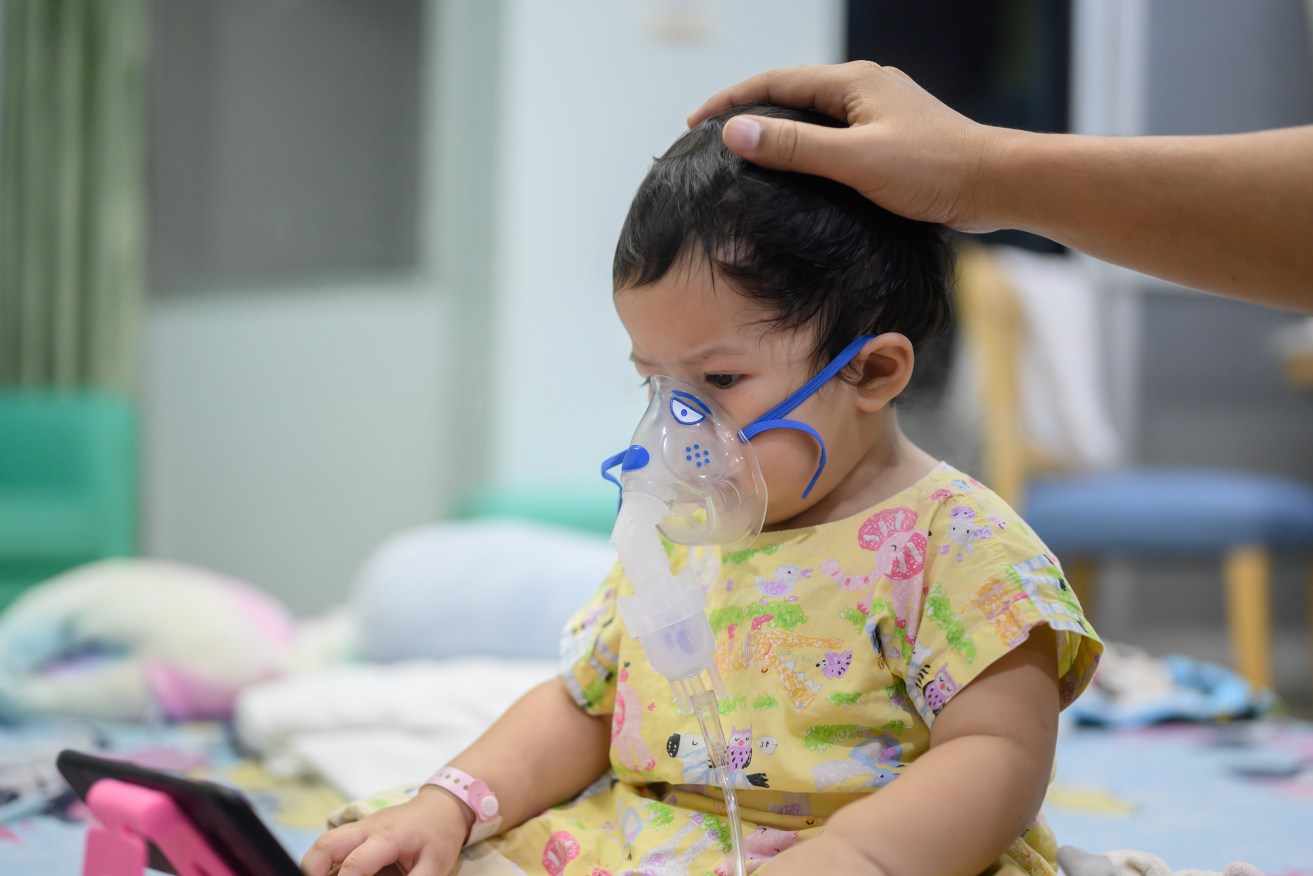New RSV drug cuts hospital admissions in babies by 80 per cent


Up to three per cent of babies with RSV can end up in hospital. Most cases look like a cold. Photo: Getty
Here’s some very good news for the new year. The most common cause of hospitalisation in infants has been given a kick in the pants.
A “ground-breaking” clinical trial has shown the numbers of babies and small children ending up in hospital – because of respiratory syncytial virus (RSV) – could be cut by 80 per cent with a single jab.
RSV is responsible for more than 100,000 deaths and 3.6 million hospitalisations in children worldwide every year.
When Australia abandoned COVID-19 social restrictions, the number of cases “skyrocketed”.
The trial
The study, part of the ongoing trial, was conducted in infants ages 12 months and younger who were entering their first RSV season in France, Germany or the UK.
A total of 8058 infants were randomised to receive either a single intramuscular injection of nirsevimab (4037 infants) or no intervention (4021 infants).
Nirsevimab was 83.2 per cent effective in preventing hospitalisation for RSV-associated lower respiratory tract infections.
During the study, 11 infants (0.3 per cent) in the nirsevimab group and 60 (1.5 per cent) in the standard-care group were hospitalised for RSV-associated lower respiratory tract infections.
The antibody was 75.7 per cent effective in preventing very severe RSV-associated lower respiratory tract infections.
This occurred in five infants (0.1 per cent) in the nirsevimab group and in 19 (0.5 per cent) in the standard-care group.
Two of the five infants in the nirsevimab group were admitted to an intensive care unit, but neither required mechanical ventilation, the authors said.
How does nirsevimab work?
According to an explainer from the Centres for Disease Control and Prevention, nirsevimab contains monoclonal antibodies.
These are man-made proteins that protect against RSV.
Though it does not activate the immune system the way an infection or vaccine would, a nirsevimab shot provides protection similar to that of a vaccine.
The protection that nirsevimab provides is called “passive immunity” because it does not come from the person’s own immune system.
Instead, the protection comes from antibodies produced outside a person’s body.
How long does protection last?
The CDC advises that one dose of nirsevimab protects infants for at least five months. This is the length of an average RSV season.
Because nirsevimab does not activate the immune system, protection is most effective in the weeks after the jab. Protection lessens over time.
Nirsevimab does not provide long-term protection to RSV disease. But it does protect infants when they are most at risk of getting very sick from RSV.
Here is more from the CDC about the new treatment, and some advice about RSV in vulnerable adults.
The Therapeutic Goods Administration approved nirsevimab for use in Australian babies in November.








